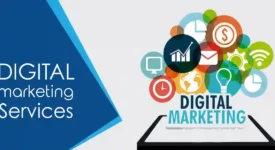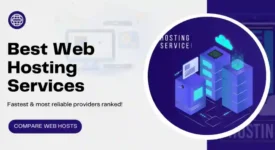In today’s digital age, your online reputation is as valuable as your physical assets. Every interaction, mention, and review related to your brand can influence how customers perceive you. That’s why online reputation management (ORM) is critical for building and protecting your brand. In this article, we’ll explore the importance of ORM, effective strategies, and best practices to ensure your brand maintains a positive image in the online world.
Understanding Online Reputation Management
Before we delve into the strategies, let’s define what online reputation management is and why it’s essential:
What is Online Reputation Management (ORM)?
ORM is the practice of monitoring, influencing, and managing the online perception of a brand or individual. It involves actively shaping public opinion and addressing any negative or damaging content that may arise.
Why is ORM Important?
Your online reputation plays a significant role in your brand’s success. Here’s why ORM matters:
- Trust and Credibility: A positive online reputation builds trust and credibility with your audience. Customers are more likely to choose a reputable brand.
- Influence on Decision-Making: People rely on online reviews and information to make purchasing decisions. A strong online reputation can lead to increased sales.
- Competitive Advantage: In a competitive market, a positive reputation can set you apart from competitors. It can be a deciding factor for consumers choosing between similar options.
- Recruitment and Partnerships: Potential employees, investors, and business partners often research a company’s online reputation before engaging in any form of collaboration.
Online Reputation Management Strategies
Now that you understand the importance of ORM, let’s explore effective strategies to build and protect your brand’s online reputation:
1. Monitor Your Online Presence
The first step in ORM is to be aware of what’s being said about your brand. Set up Google Alerts, use monitoring tools like Mention or BrandWatch, and regularly check social media platforms for mentions, comments, and reviews related to your business.
2. Provide Excellent Customer Service
Positive customer experiences are the foundation of a strong online reputation. Train your staff to deliver exceptional service, address customer concerns promptly, and strive for customer satisfaction.
3. Encourage Positive Reviews
Actively encourage satisfied customers to leave positive reviews on platforms like Google, Yelp, TripAdvisor, or industry-specific review sites. Make it easy for customers to provide feedback, and thank them for their support.
4. Respond to Negative Feedback
Negative feedback is inevitable, but how you handle it can make all the difference. Respond to negative reviews or comments professionally, empathetically, and constructively. Address the issue and offer solutions when possible.
5. Create and Share High-Quality Content
Proactively create and share valuable, informative content related to your industry. Regularly update your website with blog posts, articles, and guides that showcase your expertise and commitment to providing value.
6. Optimize for SEO
Optimize your website and content for search engines to ensure that your positive content ranks well in search results. This can help push down negative content and make it less visible.
7. Engage with Your Audience
Actively engage with your audience on social media platforms and respond to comments and messages promptly. Be authentic, transparent, and approachable in your interactions.
8. Build a Strong Online Brand
Consistency in branding across all online platforms is essential. Create a cohesive brand image, including logos, colors, and messaging, to ensure a memorable and recognizable online presence.
9. Address Online Attacks and Trolls
In some cases, individuals or competitors may attempt to tarnish your reputation with false information or malicious content. Be prepared to address such attacks legally if necessary. Consult with a legal expert for guidance.
10. Seek Professional Help if Needed
For complex reputation management issues, consider seeking assistance from professional ORM agencies or experts. They have the experience and tools to handle challenging situations effectively.
11. Foster Positive Relationships
Build positive relationships with influencers and industry leaders who can vouch for your brand’s credibility. Partnering with reputable individuals can enhance your online reputation.
12. Be Transparent and Honest
Transparency and honesty are essential in maintaining a positive reputation. If your brand makes a mistake, acknowledge it, apologize, and take steps to rectify the situation.
13. Monitor Trends and Feedback
Stay updated on trends and changing customer preferences within your industry. Adapt your strategies accordingly to ensure your brand remains relevant and in tune with your audience.
14. Educate Your Team
Ensure that your entire team understands the importance of online reputation management. Provide training on how to handle customer interactions, feedback, and online communications.
15. Analyze and Learn
Regularly assess the effectiveness of your ORM efforts. Analyze data, such as sentiment analysis, online mentions, and website traffic, to gauge the impact of your strategies. Use these insights to refine your approach continually.
16. Plan for Crisis Management
Prepare a crisis management plan that outlines how your brand will respond to severe reputation threats or crises. Having a plan in place can minimize damage and protect your brand’s image.
17. Focus on Long-Term Reputation Building
Remember that reputation management is a long-term endeavor. Building a positive online reputation takes time and consistency. Stay committed to maintaining a strong brand image over the years.
In conclusion, online reputation management is essential for building and protecting your brand in the digital age. By implementing these strategies and actively engaging with your audience, you can create a positive online reputation that inspires trust, credibility, and loyalty. Remember that your online reputation is an ongoing effort, so invest in it wisely and watch your brand flourish in the digital world. Your reputation is an invaluable asset—protect it and nurture it with care.








